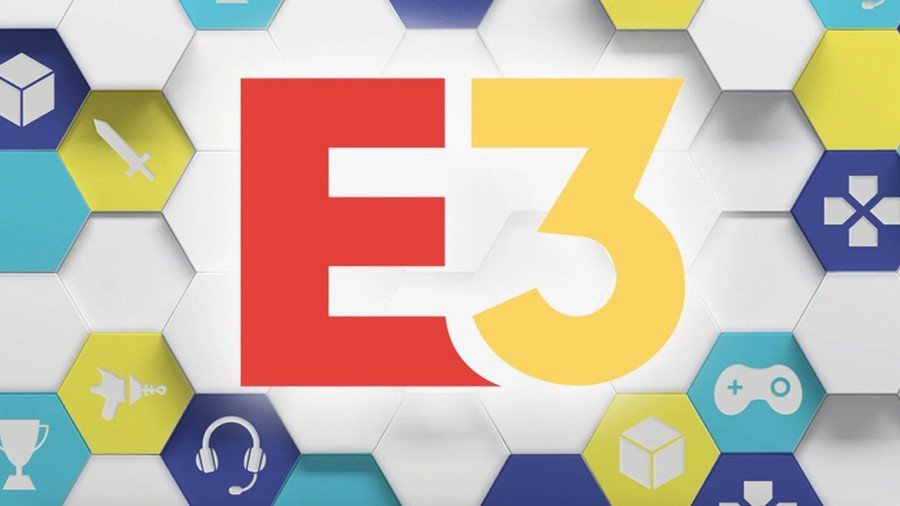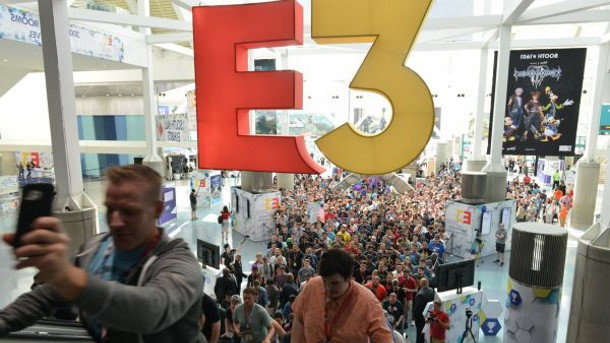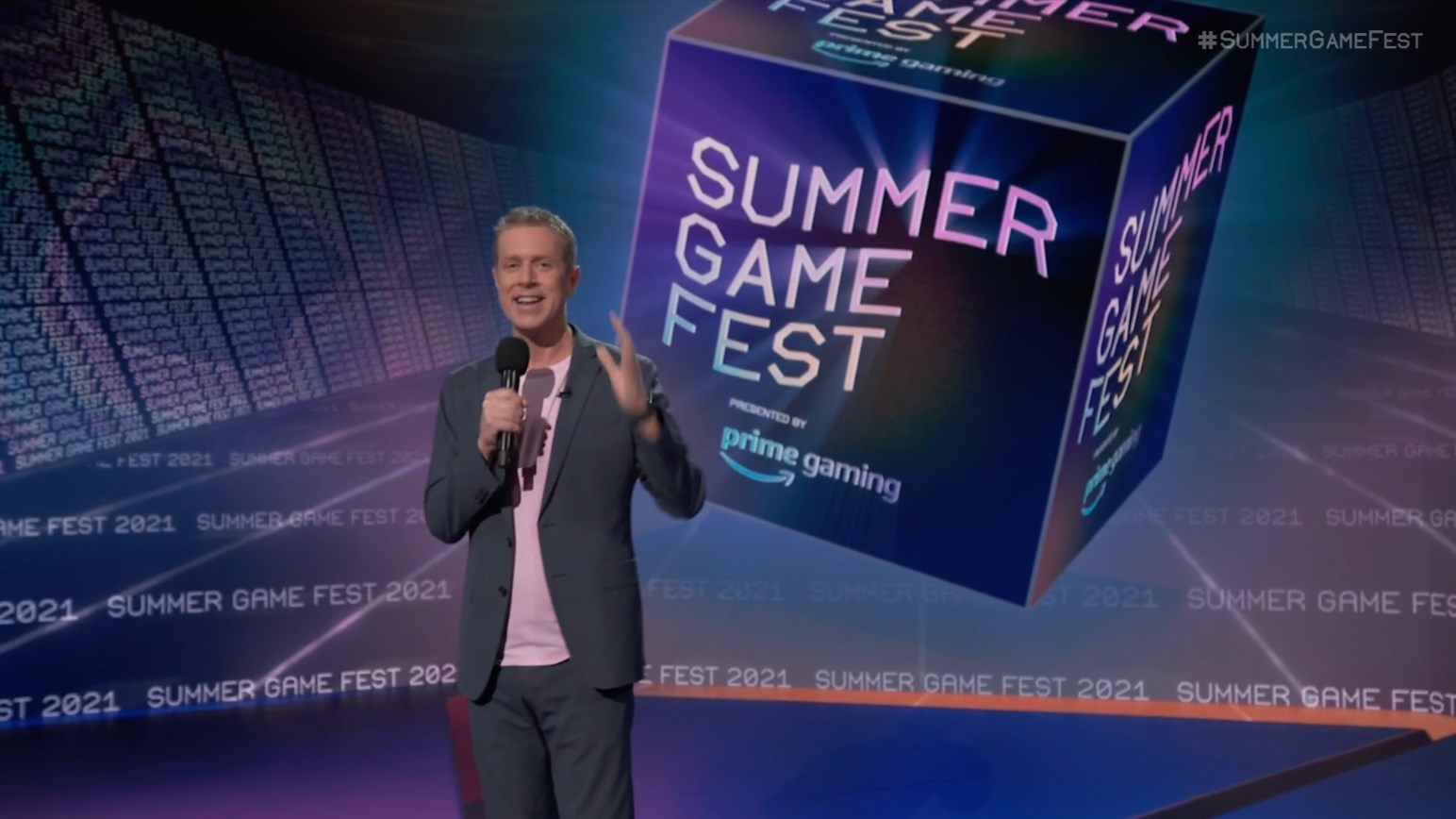E3 should never be in-person again
Even if that hastens its irrelevance.

E3 will be an online-only conference again this year, the ESA announced yesterday. This shouldn't come as a surprise, given the current situation with Covid and the Omicron variant. It's a bit tricky planning huge events when more lockdowns could be looming. Even when we're out of the woods, though, I hope E3 never comes back as an in-person event.
It's been a while since E3 was the most important event in the gaming calendar, and it's always struggled to capture the breadth of the industry. It wasn't all that long ago that you could watch E3 and be left wondering if any PC games were coming out, the event was so disinterested in the platform.
Now there are so many better ways to show off your game. There are digital events throughout the year, and developers have more access to their potential audience than ever before. It no longer makes sense for smaller studios to compete with the likes of Microsoft and EA when they can showcase what they've been working on in a more appropriate setting alongside a more closely aligned selection of games, like the Wholesome Direct.

So what's the appeal of an in-person E3? The expensive booths, the massive competition for attention, the travel costs—all of it is off-putting. For developers on a tight budget or with disabilities—previous E3s have been wheelchair-accessible, but even travel can be a challenge for prospective exhibitors who suffer from chronic pain or other issues—it might not be an option.
What I see a lot of are developers, PR folk and journalists missing the networking and social elements. I sympathise with that. I got my first proper break after chatting to an editor outside a pub at an in-person event. It does make a difference. You're not going to get scoops or hot gossip in an online roundtable interview, either. But that speaks to another industry-wide problem: you're expected to go out drinking. I love a drink, and I've got a lot of great memories of boozy events, but it's not so great for teetotallers, people with social anxiety or anyone who'd rather avoid being hit on by drunk jerks.
So what's the appeal of an in-person E3? The expensive booths, the massive competition for attention, the travel costs—all of it is off-putting.
Going digital comes with its own issues, of course. Setting up online events is a massive pain. There are even more technical hurdles to overcome, and god forbid you try to stream your demo when you've got journalists from all over the world with entirely different connection speeds wanting to take a look.
As a Scot with iffy internet, these last two years have been pretty frustrating, with too many previews being based on grainy, laggy demos. Just give me a code that will eventually self-destruct or something—please, no more streaming demos. But that's still an improvement on spending a week in LA running around a convention centre while sweating my arse off, only to come away with the same stuff I could have written up from the comfort of my flat. I will welcome the return of UK in-person events, but the fewer transatlantic trips I make the better.
The biggest gaming news, reviews and hardware deals
Keep up to date with the most important stories and the best deals, as picked by the PC Gamer team.

So I'm glad E3 is going digital again, though I don't think it's going to survive indefinitely in this form. Last year, I kept forgetting which streams and announcements were part of E3, and which were part of some other completely separate showcase. And the way it's been broken up to consume the entire summer instead of just a few days makes it pretty exhausting even when you're not having to leg it around a physical space. Summer is probably always going to be full of reveals, but there are now so many alternatives that allow developers and publishers to sidestep the ESA.
Regardless of what format is settled on in future years, E3 will be competing with the likes of Summer Game Fest, the latest of which was cheekily announced right after reports of the online E3 came out. Geoff Keighley has successfully positioned himself as the face of the industry, while E3 is this faceless monolith. And Summer Game Fest was set up specifically as an online event—it's not trying to adapt. Later in the year there's also the The Game Awards, which increasingly feels like a condensed E3.
Gaming is now so distributed and complex that it's no longer served well by a big centralised event. E3 has simply outlived its usefulness. It had a good run, at least, and I'm sure it'll stick around for a bit longer, even if it's not as relevant as it once was. The name does still have weight, and I imagine showing off a game at E3 remains an exciting prospect for new developers. But it will just be one of several events taking place in the summer, not the star. Things are not going to go back to the way they were, which is probably for the best.

Fraser is the UK online editor and has actually met The Internet in person. With over a decade of experience, he's been around the block a few times, serving as a freelancer, news editor and prolific reviewer. Strategy games have been a 30-year-long obsession, from tiny RTSs to sprawling political sims, and he never turns down the chance to rave about Total War or Crusader Kings. He's also been known to set up shop in the latest MMO and likes to wind down with an endlessly deep, systemic RPG. These days, when he's not editing, he can usually be found writing features that are 1,000 words too long or talking about his dog.

